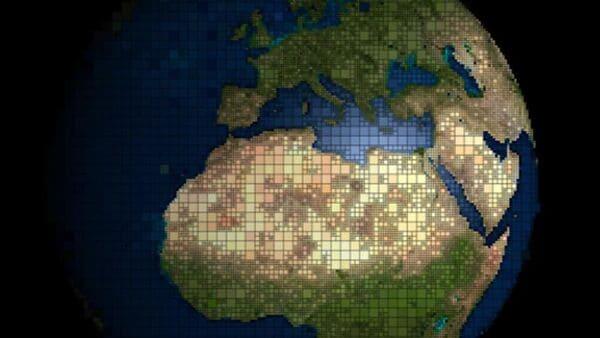Moldova Region's Energy Crisis Worsens As Water Supply Disrupted
“People don't have electricity for hours, they don't have heating, they don't have access to gas and starting today they have even interruptions with water supply,” Recean told reporters on Monday.“Some people are freezing, some are having problems with basic needs.”
The region of about 350,000 people - located on the left bank of Dniester river and adjacent to Ukraine - saw its gas flows halted Jan. 1, when a transit agreement between Moscow and Kyiv expired. Discussions between Russia's Gazprom PJSC and Moldova to secure supplies on alternate routes have been hampered by a dispute over alleged debt.
In the past two years, Transnistria received all of the gas Moldova imported from Gazprom - about 2 billion cubic meters of gas annually. The region used the fuel for its own consumption and to generate electricity that it also supplied to the rest of the country.
READ: Moldova Region's Industry Grinds to Halt on Lack of Russian Gas
“There is no point in talking to Gazprom, because this is the decision of the Kremlin to induce a humanitarian crisis on the left bank,” Recean said, when asked if there are any talks between the Moldovan government in Chisinau and the Russian producer about resuming gas flows to Transnistria.
While Moldova can't currently deliver any gas or electricity to Transnistria, it is offering some social, medical and educational services to the region's residents if they cross the river, according to the premier.“We see an increased uptake” of those services, Recean said.
Moldovans living on the right bank have no problems with gas supplies as the government has diversified its sources. The territory's electricity supply still remains vulnerable amid a lack of power generation in Transnistria. In the first days of January, energy needs of Moldova, excluding the breakaway region, were equally covered by domestic sources and imports from Romania.
“We have to adapt here for higher energy prices, in particular higher electricity prices,” Recean said. Earlier this year the National Agency for Energy Regulation increased tariffs for electricity and heating.
More stories like this are available on bloomberg
©2025 Bloomberg L.P. Legal Disclaimer:
MENAFN provides the
information “as is” without warranty of any kind. We do not accept
any responsibility or liability for the accuracy, content, images,
videos, licenses, completeness, legality, or reliability of the information
contained in this article. If you have any complaints or copyright
issues related to this article, kindly contact the provider above.
Most popular stories
Market Research

- Kucoin Partners With Golf Icon Adam Scott As Global Brand Ambassador
- Mediafuse Joins Google For Startups Cloud Program To Scale AI-Driven, Industry-Focused PR Distribution
- Solotto Launches As Solana's First-Ever Community-Powered On-Chain Lottery
- 1Inch Unlocks Access To Tokenized Rwas Via Swap API
- Leverage Shares Launches First 3X Single-Stock Etps On HOOD, HIMS, UNH And Others
- Forex Expo Dubai 2025 Returns October 67 With Exclusive Prize Draw Including Jetour X70 FL






















Comments
No comment